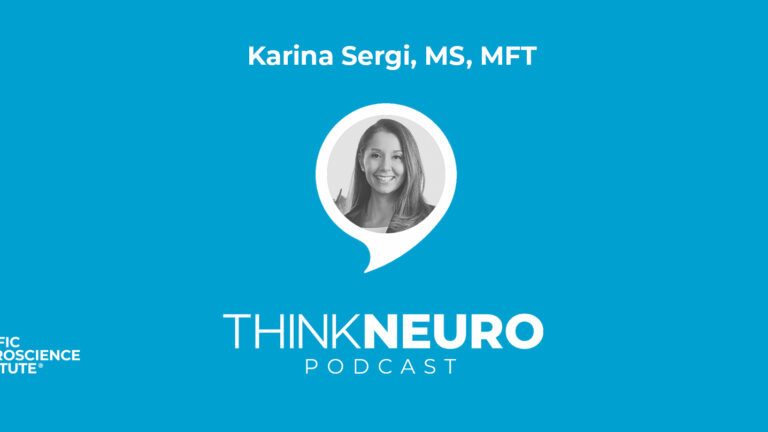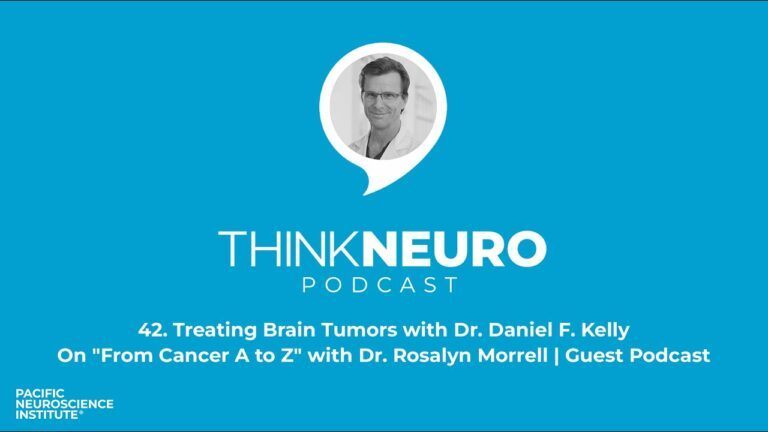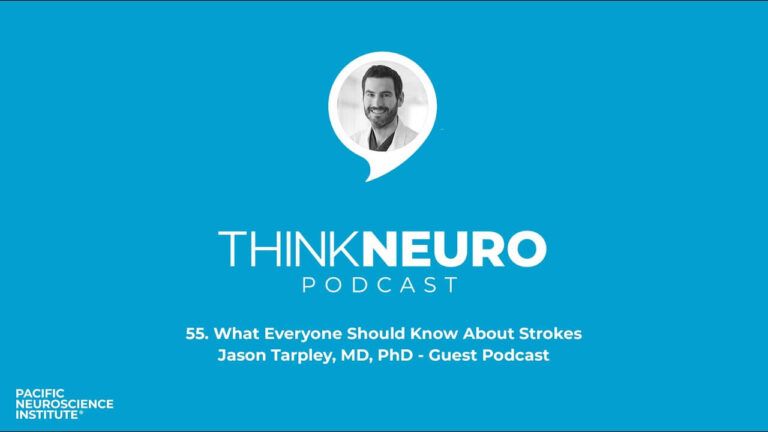
Dual Tasking to Keep Your Brain (and Body) Fit as You Age | Ryan Glatt, MS, CPT, NBC-HWC
by Anthony Effinger
The Think Neuro podcast from Pacific Neuroscience Institute takes you into the clinic, operating room and laboratory with doctors and surgeons who are tackling the most challenging brain diseases and disorders. Host: Anthony Effinger
Subscribe: Google Podcasts | Apple Podcasts | Spotify | Simplecast
Watch on YouTube: Click Here
Episode 57: Show Notes
Ryan Glatt is a certified personal trainer, a national board-certified health and wellness coach, and director of FItBrain at PNI. He’s also a big believer in the idea that just getting on a treadmill isn’t enough to keep our brains and bodies in top condition as we age.
We must “dual task,” Glatt says. That means finding activities that challenge our minds and bodies at the same time, like dance or pickleball. Glatt, whose own energy and enthusiasm is infectious, is a big fan of video games that make you move. He got fit (and came out of his shell) years ago by playing Dance Dance Revolution, which requires both deft movement and undivided attention.
Dual tasking is crucial as we age because it can slow dementia. Glatt has pored over the research and is convinced of that. It can also help us retain our balance, thereby preventing falls, one of the biggest causes of injury in older adults.
This high-energy conversation with Ryan will show you how important dual tasking is, and we bet it will get you up and moving by the end.
About Ryan Glatt
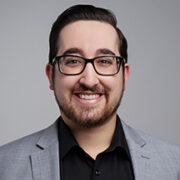
Ryan Glatt is a Certified Personal Trainer and a National Board-Certified Health & Wellness Coach with over a decade of experience. He focuses his exercise and health coaching strategies on brain health, personalizing lifestyle interventions for individuals with brain and cognitive health goals. Ryan is a Brain Health Coach and the Director of the FitBrainSM Program at Pacific Neuroscience Institute.
Check Out More Think Neuro Podcast Episodes
About the Author
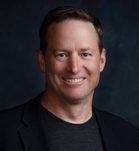
Anthony Effinger
Think Neuro's host is Anthony Effinger, an award-winning journalist who is fascinated with neuroscience and the workings of the brain. Anthony spent 24 years at Bloomberg News, where he covered all aspects of finance, with forays into science and health. In 2006, the Association of Health Care Journalists awarded him first prize for Playing the Odds, an in-depth piece on the changing strategies used to treat prostate cancer. These days, he is a staff writer at Willamette Week, a Pulitzer Prize-winning newspaper in Portland, Oregon, where he lives with his wife and two children.
Last updated: October 10th, 2024
